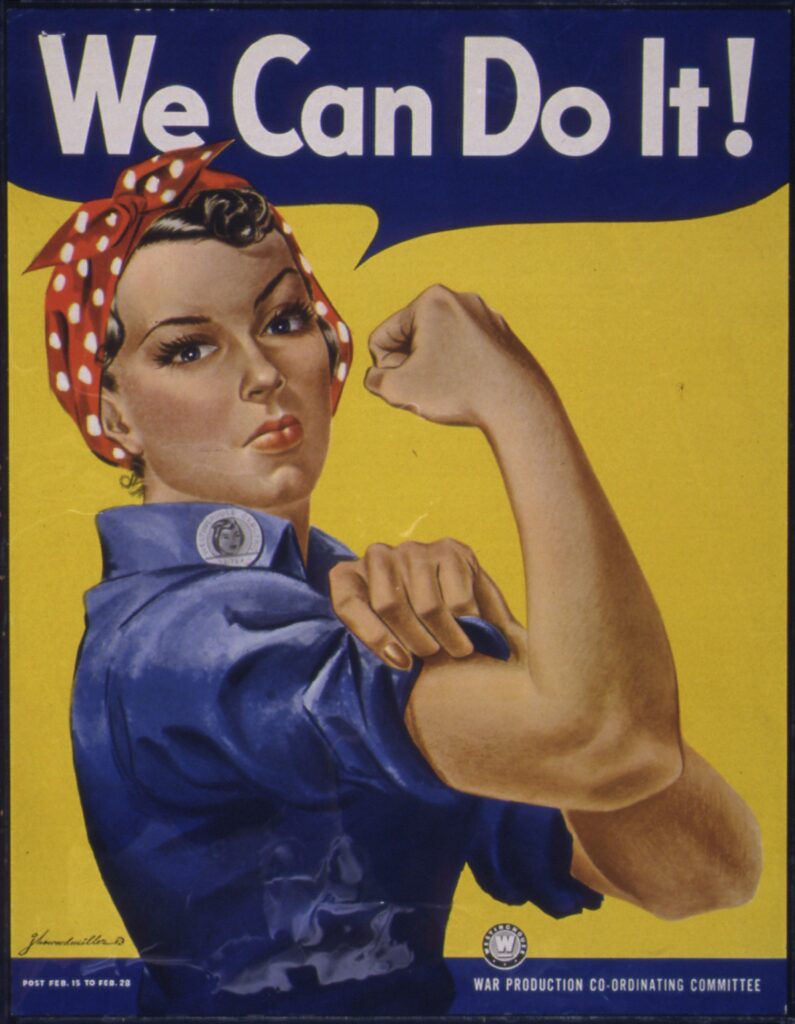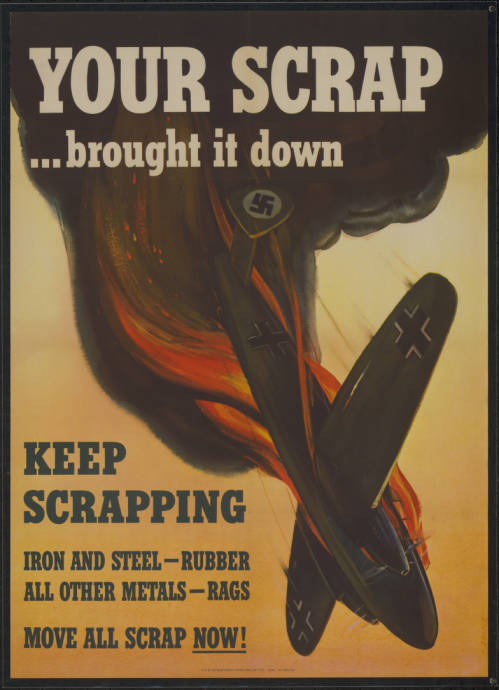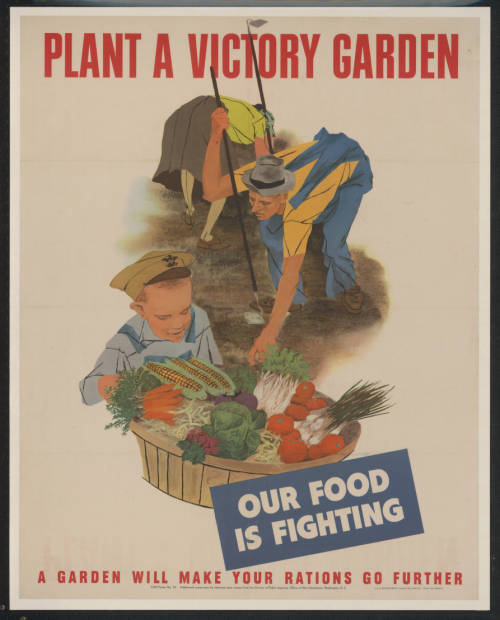Advertising
Coming out of the Great Depression, companies and corporations needed a way to restore America’s faith in capitalism. They took the war as an opportunity to associate themselves with victory and patriotism1. Although not represented in the following posters, the influence of advertising in propaganda is important to consider.
The American Dream
Discouraging Individualism on the Home Front

Rosie the Riveter
Rosie the Riveter is known to be an icon of women’s empowerment. She stood for working women and encouraged them to enter the workforce, not just in traditionally feminine roles, but in masculine roles as well. She embodied the masculine roles in a feminine way.
However, Rosie also represents a push by the government to create a feeling of collectiveness on the home front. If women believed themselves to be part of the collective of women that Rosie stood for, they would be more likely to contribute to the war. The government tried to limit individuality2 so that women felt that their work was bigger than themselves. It was about the country and victory as a whole.
Rosie the Riveter recruited women to be a part of a larger identity. This, of course, contributed to her empowering influence but women’s empowerment was not Rosie’s only purpose.
Citation: War Production Co-Ordinating Committee, United States Creator. We Can Do It! Rosie the Riveter. [Place of Publication Not Identified: Publisher Not Identified, to 1943] Photograph. Retrieved from the Library of Congress, <www.loc.gov/item/2021669753/>.
Conservation and Victory Gardens
Like during World War I, civilians were asked to conserve materials, donate extra materials/scrap, and plant victory gardens.3 This was all in an effort to give more to the soldiers at war. Below are two examples of how propaganda posters asked civilians to conserve, donate, and plant.


- Honey, Maureen. Creating Rosie the Riveter: Class, Gender, and Propaganda during World War II. The University of Massachusetts Press, 1984. [↩]
- Honey, Maureen. Creating Rosie the Riveter: Class, Gender, and Propaganda during World War II. The University of Massachusetts Press, 1984. [↩]
- Winkler, Allan M.. Home Front U. S. A. : America During World War II, John Wiley & Sons, Incorporated, 2012. ProQuest Ebook Central, https://ebookcentral.proquest.com/lib/gettysburg/detail.action?docID=1765088. [↩]